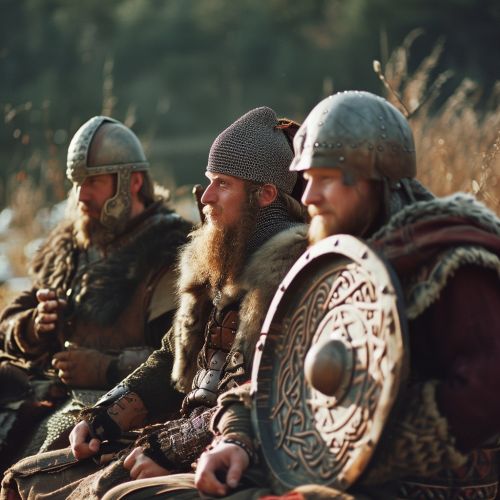Early Middle Ages
Introduction
The Early Middle Ages, also known as the Dark Ages, was a period in the history of Europe that followed the fall of the Western Roman Empire. This era is marked by the migration of various Germanic tribes, the spread of Christianity, and the formation of new political entities.
Historical Context
The Early Middle Ages began with the fall of the Western Roman Empire in the late 5th century. The decline of the Roman Empire was a result of various internal and external factors, including economic instability, military weakness, and the migration of Germanic tribes. The fall of the Roman Empire led to a period of significant change and uncertainty in Europe.
Migration Period
The Migration Period, also known as the Barbarian Invasions, was a period of intense human migration in Europe that occurred from the late 4th to early 6th century. This period was characterized by the migration of various Germanic tribes such as the Goths, Vandals, and Lombards, among others. These migrations resulted in significant cultural and political changes in Europe.


Spread of Christianity
During the Early Middle Ages, Christianity spread throughout Europe. This was largely due to the efforts of missionaries like Saint Patrick and Saint Augustine of Canterbury, who worked to convert the pagan populations of Ireland and England respectively. The spread of Christianity also played a significant role in the formation of new political entities in Europe.
Formation of New Political Entities
The Early Middle Ages saw the formation of new political entities in Europe. One of the most significant of these was the Frankish Empire, which was established by Clovis I in the late 5th century. The Frankish Empire played a crucial role in the spread of Christianity and the development of Western Europe.
Conclusion
The Early Middle Ages was a period of significant change and development in Europe. This era, marked by the fall of the Western Roman Empire, the migration of Germanic tribes, the spread of Christianity, and the formation of new political entities, laid the foundation for the development of modern Europe.
